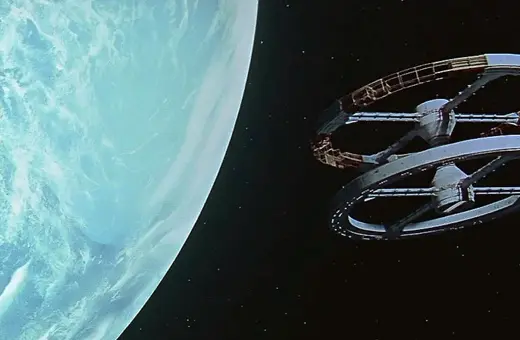Billionaires are making regular trips to space for a reason: they want to harness the potential economic payoff. We need to come up with a framework for property rights in space that will benefit all of humanity, not just the super rich, argues Rebecca Lowe. Under her proposal - inspired by philosopher John Locke - people could earn the right for the exclusive use of plots of moon land, as long as this advances certain moral aims.
Revisiting the Outer Space Treaty of 1967 that bans any appropriation of planetary or lunar land might be worth doing, writes Tony Milligan. But using John Locke’s 17th century framework is not the way to think about property rights in space. The Solar System is a very different place from Earth, and a whole new type of economy would need to be invented for it.
In two separate articles, Rebecca Lowe and Tony Milligan put forward their arguments on how we should think about property rights in space.
Rebecca Lowe
Privatising the moon’ is a meme, or at least a caricature. It’s used to emphasise the unrelenting greed of capitalists: ‘They’d sell off the moon if they could!’. Cowboys on Earth. Cowboys in space. And fair enough, rocket-man billionaires are rarely out of the news these days.
Nonetheless, these billionaires give us good reasons to think hard about property rights in space. Firstly, it’s not enough just to state that doing something — even as outlandish sounding as privatising the moon — is wrong. You need to be able to explain why. What if humankind needed to escape Earth? Would it be fundamentally impermissible to try to inhabit the moon, in such a situation? We’d struggle without any recourse to private property.
Beyond that, it’d be nice to think that these billionaires are spending their money on rocketships solely for the intrinsic value of knowing more about our universe. But presumably a large part of them taking on the serious financial and reputational costs of space exploration is a massive potential payoff. And that payoff is something that could be harnessed for the good of all humankind.
___
The more you think about it, the clearer it seems that a morally-justified system for assigning and governing property rights in space could present vast benefits.
___
The more you think about it, the clearer it seems that a morally-justified system for assigning and governing property rights in space — in land, in other resources, even in the vacuum itself — could present vast benefits. These potential benefits extend far beyond financial rewards for people becoming owners under such a system, and the other direct and indirect beneficiaries of these ownerships. They also relate to the provision of incentives for the responsible stewardship of space, as well as opportunities for new scientific discovery and ‘democratised’ space exploration.
Of course, this doesn’t mean that we shouldn’t consider potential costs. Debate rages about property-related injustice and unfairness on Earth: not least regarding the decisions and actions of our forebears, relating to the acquisition of property rights, the distribution of access to natural resources, and the colonisation of areas already serving as the livelihood and homes of indigenous peoples. Debate continues about the future of Earth, too: about how we should act now if we are to conserve our planet appropriately, for its own sake, and for future generations. All this reminds us of the serious costs that property-rights regimes can impose, and the importance of ensuring that legal claims to ownership are morally justified.
___





















Join the conversation